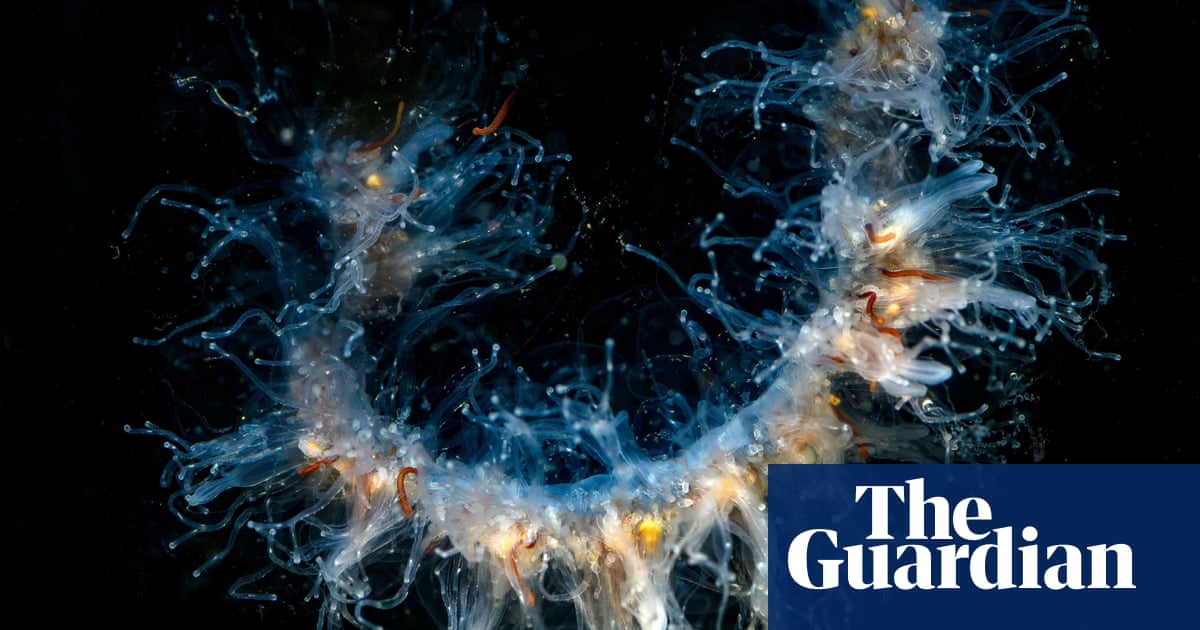A jellyfish species that has been wreaking havoc on Norway’s salmon industry has made its way to Scotland, causing significant damage and prompting calls for urgent action.
The string jellyfish has killed millions of salmon in Norwegian sea farms with officials urging an extermination of affected stocks.
Now the jellyfish has been reported at several sites in Scotland and to date has caused the death of more than 200,000 farmed salmon.
Dale Vince, the eco-industrialist and founder of the Green Britain Foundation, which has been actively campaigning for increased scrutiny and regulation of the industry, said: “This jellyfish attack is the latest example of how the fish farming industry is failing to cope with environmental challenges. We routinely see them using the land and sea as a sewer for their toxic business, and now nature is fighting back.”
The two Scottish farms known to be affected so far are in the waters around Skye and Muck. According to data from the Fish Health Inspectorate the salmon farm around Skye has seen the death of 70,000 salmon, and the one at Muck 160,000.
A spokesperson for Salmon Scotland denied salmon farms harmed the environment and said blooms of the jellyfish had also been detected in 2022 and 2023 and were caused by rising sea temperatures.
“There are about 70m farm-raised salmon in Scotland’s waters at any time,” said a spokesperson for Salmon Scotland. “Survival rates are at a four-year high following nearly £1bn investment in fish health and welfare, including measures to mitigate any impact of microscopic jellyfish blooms.”
Campaigners say the jellyfish sting the fish’s skin, eyes and gills, leaving them badly injured and vulnerable to infection and disease, often resulting in a slow, painful death.
Jellyfish are just the latest issue to hit the salmon farming industry which has been dogged by concerns over welfare standards, mortality and pollution.
This week the Scottish government’s Rural Affairs and Islands Committee, after a formal Holyrood inquiry, stopped short of calling for a ban on any expansion of the industry, but it did express concern over the “slow rate of progress in improving regulation and enforcement”.
Chris Packham, the television presenter and environmental campaigner, said: “Climate breakdown and biodiversity loss are accelerating at an unprecedented rate – actively driven by industries like Scottish salmon farming that use and abuse our precious landscape and unambiguously damage the environment and multiple ecosystems and the wildlife that lives there – not just in Scotland but around the world.”
The committee said climate breakdown was affecting the salmon industry, with millions of fish dying each year due to rising water temperatures.
after newsletter promotion
Packham added: “Let’s be clear: deaths and disease will inevitably increase on fish farms if strict measures aren’t taken now.”
The Green Britain Foundation is also calling for increased scrutiny and regulation of the industry and said the jellyfish serve as a stark warning that, as climate breakdown continues to disrupt marine ecosystems, these farms are increasingly exposed to unpredictable and potentially catastrophic threats.
Recent reports from Norway indicate the threat to farmed salmon from jellyfish is continuing. In 2023 the jellyfish killed about 3m farmed salmon in the country.
A spokesperson for Mowi Scotland, the owner of the one of the salmon farms involved, acknowledged jellyfish blooms can affect salmon health in several different ways.
“To manage this emerging threat, intensive monitoring programmes are in place at Mowi’s salmon farms across Scotland,” said a spokesperson for Mowi Scotland. “There are daily tracking efforts, which involve water sampling, species identification and counts, and temperature and oxygen monitoring at various depths. We analyse trends daily to anticipate and mitigate conditions that might lead to harmful blooms.”
A Scottish government spokesperson said the health of farmed fish was a priority: “While we do not have comprehensive information regarding which species of jellyfish are present on fish farms in every case of reported mortality, the salmon farming sector is focused on better understanding the impact of jellyfish as a cause of mortality.”
Article by:Source – Matthew Taylor















